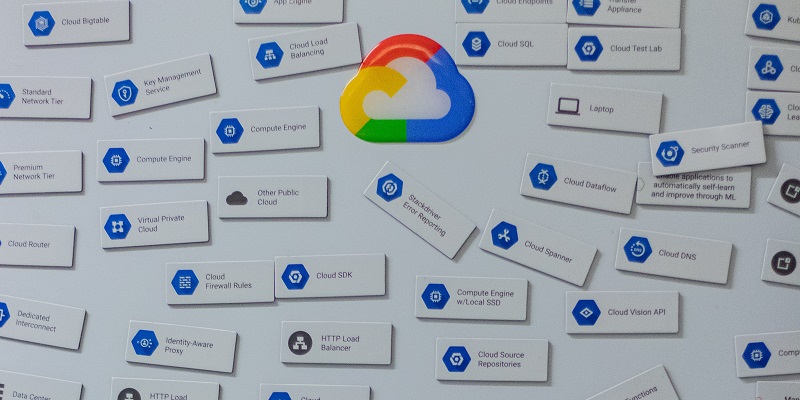As the demand for AI services continues to rise, Google Cloud has taken steps to expand its data residency options in Asia. With its generative AI services gaining popularity worldwide, Google Cloud now allows organizations to store their data at rest in any of the ten available countries across North America, Europe, and Asia. This article delves into the significance of data sovereignty, explores Google’s approach to data and privacy, highlights the selection of Singapore as a data residency location, discusses the collaboration with the Centre for Strategic Infocomm Technologies (CSIT) in Singapore, explores the features of Google Distributed Cloud Hosted (GDC Hosted), and announces plans for strategic collaborations in Thailand and Malaysia.
Data Storage Options in Asia
To better serve its customers in Asia, Google Cloud now offers data storage options in Japan, Singapore, and Korea. By providing local data residency, Google Cloud enables organizations in these countries to have enhanced control over their data, comply with local regulations, and address privacy concerns more effectively. This expansion acknowledges the growing importance of the Asian market and reflects Google Cloud’s commitment to meeting the unique needs of its diverse customer base.
The Significance of Sovereign Cloud
In an era when compliance and regulatory requirements vary across different countries, the concept of sovereign cloud has gained significant importance. Data sovereignty refers to the authority and jurisdiction over data, meaning that organizations have the power to determine how their data is stored and processed. With the increasing focus on data privacy and security, organizations now require data residency options that align with the regulations set by local governments. Google Cloud’s decision to expand data residency options addresses these concerns and ensures that organizations can meet compliance requirements while benefiting from their AI services.
Google’s Approach to Data and Privacy
Privacy and data security have always been top priorities for Google. To address concerns surrounding customer data, Google Cloud allows organizations to retain control over their data and models while controlling access to them. By offering comprehensive data privacy settings and strong access controls, Google Cloud ensures that organizations can safeguard their data and comply with relevant privacy regulations. This commitment to data and privacy protection builds trust among customers and ensures the responsible use of AI technologies.
Singapore as a Data Residency Location
Among the available options in Asia, Singapore stands out as a preferred data residency location. Known for its development and focus on AI, Singapore has been at the forefront of driving AI use cases and adoption in the region. Moreover, Singapore has established a robust infrastructure and a supportive ecosystem, making it an ideal choice for organizations looking to harness the power of AI. By selecting Singapore as a data residency location, Google Cloud aims to support the growth of AI initiatives in the country while meeting the data residency needs of its customers.
Collaboration with CSIT in Singapore
To further support AI efforts in defense and security, Google Cloud has partnered with the Centre for Strategic Infocomm Technologies (CSIT) in Singapore. This collaboration aims to pilot the use of Google Distributed Cloud Hosted (GDC Hosted) in Singapore. GDC Hosted provides organizations with a cloud platform that operates independently, requiring no connectivity to Google Cloud or the public internet. By leveraging GDC Hosted, CSIT and Google Cloud will explore innovative AI applications for defense and security purposes. This partnership showcases the continuous efforts made by Google Cloud to collaborate with industry leaders and advance AI research and capabilities.
Features of GDC Hosted
With GDC Hosted, Google Cloud offers organizations a unique cloud platform that operates autonomously. This feature allows organizations to have more control over their data and models, mitigating potential security risks due to external connectivity requirements. By adopting GDC Hosted, organizations can bolster their data privacy and security measures while enjoying the benefits of Google’s advanced AI technologies.
Strategic Collaborations in Thailand and Malaysia
In addition to expanding data residency options and partnering with CSIT in Singapore, Google Cloud has announced plans for strategic collaborations in Thailand and Malaysia. These collaborations aim to boost digital competitiveness, accelerate AI innovation, and provide digital skills training in the respective countries. With a focus on improving public service delivery and promoting secure and responsible AI adoption, these collaborations intend to make digital skills more accessible to the people. By working closely with local governments and organizations, Google Cloud strives to empower societies with AI capabilities and create a more inclusive and digitally proficient future.
Google Cloud’s expansion of data residency options in Asia, with a particular focus on Japan, Singapore, and Korea, highlights its commitment to addressing the unique needs of customers globally. By providing organizations with greater control over their data, Google Cloud ensures compliance with local regulations while facilitating innovation and collaboration. The selection of Singapore as a data residency location demonstrates Google Cloud’s recognition of the country’s AI development and its focus on supporting AI initiatives in defense and security through collaboration with CSIT. With GDC Hosted offering an independent cloud platform, organizations can enhance their data privacy and security measures. Furthermore, the strategic collaborations in Thailand and Malaysia signify Google Cloud’s dedication to driving digital competitiveness and making AI solutions and digital skills more accessible to all. As the demand for AI services continues to rise, Google Cloud remains at the forefront of empowering organizations and societies through its cutting-edge technologies and global partnerships.

